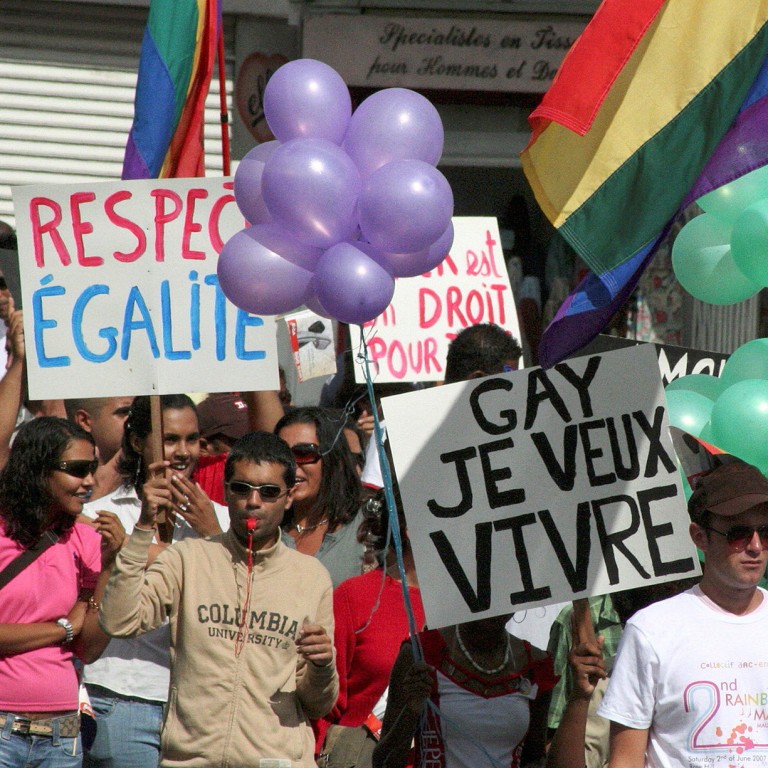
Mauritius repeals colonial-era law against gay sex
- The decision was hailed by rights groups and UNAids, the United Nations agency in charge of combating HIV/Aids, saying it would save lives
- The ruling comes as an anti-gay crackdown grips East Africa, which has a history of repression and stigmas against gay people
The remote paradise island popular with holidaymakers has a reputation for tolerance and has held gay events in the past.
But a British colonial-era law dating back to 1898 penalised anyone convicted of sodomy with up to five years in jail.
“Section 250 was not introduced in Mauritius to reflect indigenous Mauritian values but was inherited as part of our colonial history from Britain,” a two-judge bench of the Supreme Court ruled on Wednesday. “We, accordingly, declare that section 250(1) of the Criminal Code is unconstitutional.”
China’s LGBTQ tourists flock to Thailand to ‘forget all upsetting things’
The legal challenge was brought forward by members of the gay community, arguing that the law ran afoul of basic rights, including the right to liberty.
Wednesday’s decision was hailed by rights groups and UNAids, the United Nations agency in charge of combating HIV/Aids, saying it would save lives.
The move “will mean that men who have sex with men will have much easier access to the health and social services they need without fear of arrest or criminalisation”, said Anne Githuku-Shongwe, a regional director for UNAids.
Work however still lay ahead in fighting stigma and discrimination of the LGBTQ community, she added.
The ruling comes as an anti-gay crackdown grips East Africa, which has a history of repression and stigmas against gay people, often encouraged by conservative Muslims and Christians.
In Kenya and Tanzania, gay sex remains a crime under colonial-era laws with penalties including prison terms of up to 14 years.
Convictions are rare, however, and despite the legal threats against homosexuality, gay rights groups have been allowed to operate in Kenya, unlike in neighbouring nations such as Somalia.
What will change for same-sex couples after Hong Kong’s landmark court ruling?
In May, Uganda’s President parliament passed sweeping anti-gay legislation which proposes tough new penalties for same-sex relationships.
The law – considered one of the harshest of its kind in the world – contains provisions making “aggravated homosexuality” a potentially capital offence and penalties for consensual same-sex relations of up to life in prison.
Mauritius is a mix of religions, with around half the 1.3 million people being Hindu, just under a third Christian and the remainder Muslim.

.png?itok=arIb17P0)